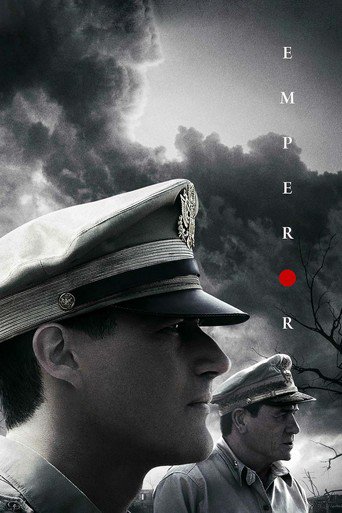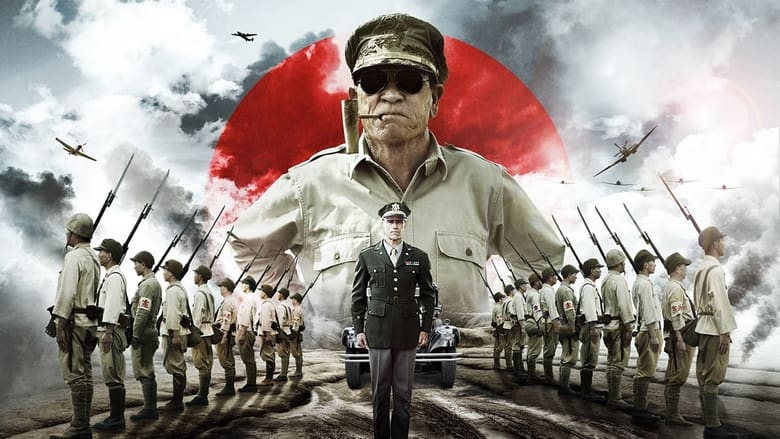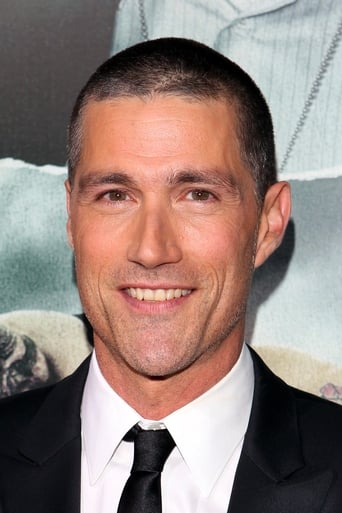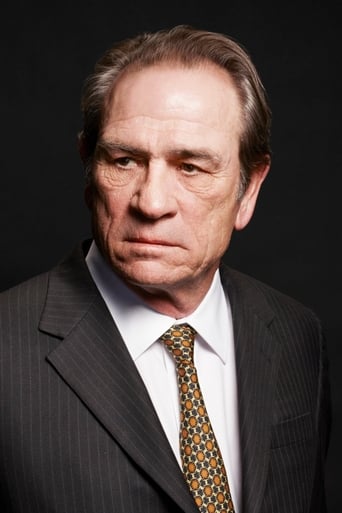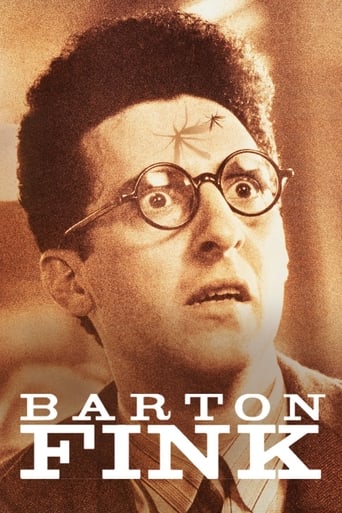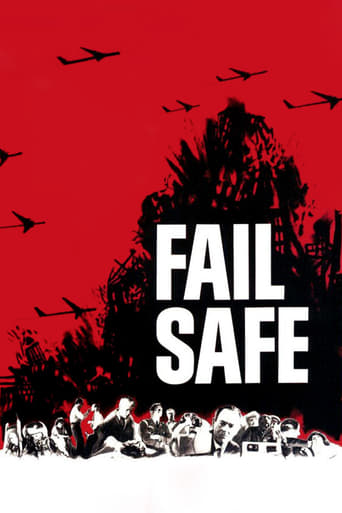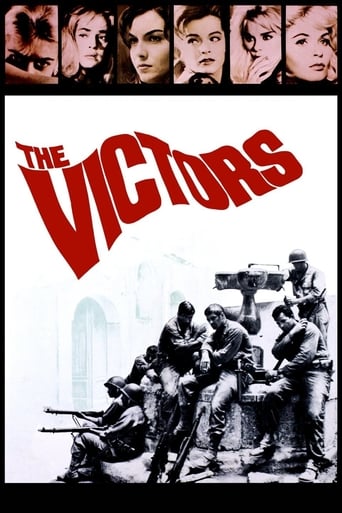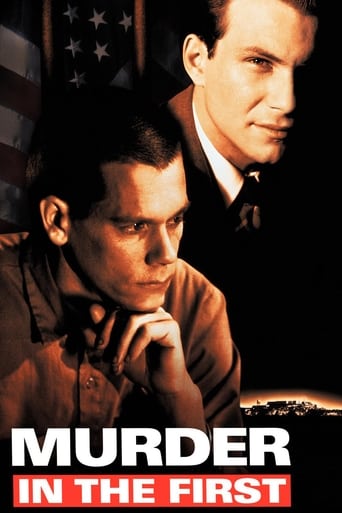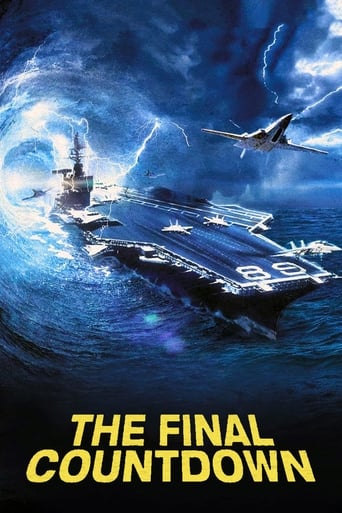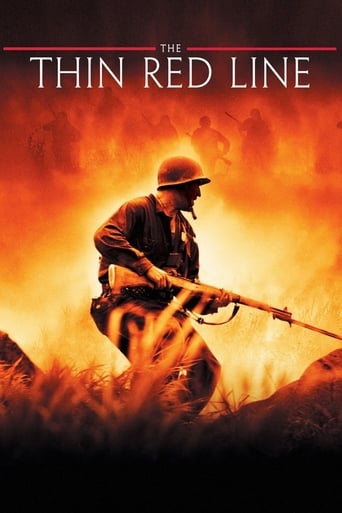Emperor (2013)
As the Japanese surrender at the end of WWII, Gen. Fellers is tasked with deciding if Emperor Hirohito will be hanged as a war criminal. Influencing his ruling is his quest to find Aya, an exchange student he met years earlier in the U.S.
Watch Trailer
Cast


Similar titles
Reviews
You won't be disappointed!
It's entirely possible that sending the audience out feeling lousy was intentional
It was OK. I don't see why everyone loves it so much. It wasn't very smart or deep or well-directed.
The best films of this genre always show a path and provide a takeaway for being a better person.
I had to view "Emperor" twice before rendering a judgment. The first time went by. Not so much in any way, but something lingered. In the meantime, I visited Japan and read the Pulitzer prize-winning book by Herbert Bix: Hirohito and The Making of Modern Japan. The second viewing was thus clearly different. This film is much like a chapter torn out of the entire book. No wonder some viewers find the film "dry", "textbook-like", or with some other unsatisfactory notes. I believe I can tell why. While the book lays an excellent ground on why we should care about this man-god called and believed by most Japanese as "Emperor, Son of The Sun", if we want to understand this part of human history, the film chooses to disregard the background and assume that the viewers are already interested. This well-made film fails at making us care enough, except the ones already do. I am one of the ones who do care. The film delicately tells a story of a great nation forced on its knees. A pain of a 2,000-year-old nation being dominated by a very young superpower with no real culture of its own. A tough choice between sacrificing oneself or the Emperor they claim to be so devoted to with their lives. However, the heart of this film is also quite well-portrayed. It is that a sheer power is always submissive to a great culture. The American leadership chose not to destroy Japan not only because it was strategically wrong, but also because the culture of Japan was and is one of the triumphs of all mankind. Destroying such a human creation is to destroy a portion of oneself. Emperors have power not only to destroy but also to protect, that is.
As a history buff I enjoyed this film. It's a thoughtful and (for the most part) balanced view of the dilemma facing MacArthur and the American occupation of what to do about Emperor Hirohito at the end of the Pacific war. The American public and the Justice Department want the emperor tried as a war criminal and most likely hanged, while MacArthur knows he needs the emperor and his mystical appeal to the Japanese as a veritable god to effect the enormous political and social changes that he and the occupation authorities are planning for post-war Japan. In addition, the United States is beginning to see Japan as a potential ally in east Asia as relations with the Soviet Union deteriorate and the Chinese civil war continues. But MacArthur has his eye on the Presidency in 1948 and so he instructs his associate Brig. General Bonner Fellers (Matthew Fox) to evaluate in only 10 days whether Hirohito should be arrested and tried as a war criminal, thus displacing some of the anger of the American electorate onto Fellers if Hirohito is not tried. The 10-day evaluation period comprises a search for Hirohito's associates to solicit exonerating information about the emperor's wartime culpability and constitutes the focus of the film.Tommy Lee Jones plays Gen. MacArthur and he conveys the necessary swagger and command presence (see "The Fugitive") that the imperious general wore like a second skin. He doesn't have MacArthur's famous speech diction, and in this regard Gregory Peck made a better MacArthur. Matthew Fox makes a very conscientious Gen. Fellers, and the Japanese actors, who are obscure to us but famous in Japan, do a marvelous job of portraying dignified, protective, demure (dare I say it: inscrutable) imperial officials who cannot explicitly exonerate the emperor but neither can they point to incriminating evidence. The emperor's role in 1930s-1940s militaristic Japan was indeed inscrutable; he did more than simply rubber-stamp the militarists' aggressive plans but his responsibility as head of state in such a government and culture was hard to evaluate, and the Japanese officials Fellers interrogated said as much. It is, however, interesting to note that more recent histories of Hirohito's role in wartime Japan have suggested his culpability was greater than earlier thought. In the film Gen. Fellers uses Hirohito's role in overcoming Japan's August 1945 Cabinet deadlock by directly speaking to the Japanese people to "endure the unendurable" to justify maintaining the emperor's role in post-war Japan, and MacArthur agrees which allows him to meet with the emperor, have that famous photo taken with just the two of them, and then proceed to unify the Japanese under the emperor's continuing presence to effect his reforms and to make Japan a U.S. ally in the post-war world.It is interesting to note that some of the same political (cold-war) issues were confronted in Stanley Kramer's "Judgment at Nuremberg"; some of the U.S. occupation officials in Germany were advising the prosecutors to be lenient with some of the Nazi judges on trial because Germany was going to be needed as an ally against the Soviets. Was "justice" conferred on Hirohito? Probably not, according to some recent post-war histories, but as "Emperor" honestly depicts, both the senior Japanese leaders and the American occupation officials, most of all MacArthur, realized that Japan could not be rebuilt and reformed, at least not as quickly or as easily, without the emperor's presence as a unifying symbol, albeit a de-divinized one, in post-war Japan.
You might have heard that what few Scenes Tommy Lee Jones as General Douglas Macarthur has in this Lightweight Misfire can be Bonafide Theft, the other side is that Matthew Fox who's on Screen most of the Time gets Blown Away by almost Everyone He Stands Beside.That's not going to Bode Well for this Talky, Dry, and Deluded Movie that is about the Investigation into Japan's God Emperor and just how much Guilt should be Assigned to a Deity. It is a Film that has Lost its way along the way, Insisting on making much of an Interracial Affair as a Metaphor for the Post War Coming Together of the former Enemies.The Film works just Fine when it Attempts to Understand the Emperor and His Role in Military Affairs with Interviews and Investigations, but Overlaying the Interesting Aspects of all this is a Miscast Fox and a Deadly Droll Love Story best left to Something Else.There are some High Spots, like the End when Macarthur and the Emperor Exchange Eye Contact, but getting there is so much Ridiculous Romping that does nothing but Siphon the Enormity of the Events and Render them the Stuff of Popular Romantic Fiction.
Although I like Tommy Lee Jones, I have to say right off that I was not entirely convinced by Tommy Lee Jones as Douglas MacArthur. He didn't seem to work in the role for me. That was something of a distraction, probably overcome by the fact that MacArthur was not front and centre in this. That place went to General Bonner Fellers (played by Matthew Fox.) Fellers was the American general who played a key role in investigating war crimes and making recommendations on charges to MacArthur.Ostensibly, the movie deals with the question of whether Emperor Hirohito should be tried as a war criminal. There's a good consideration of both sides of that debate; the pros and cons of trying Hirohito. Based, however, on my admittedly limited knowledge of what happened in post-war Japan, though, I'm not sure that the question was as open as depicted here. My understanding has been that the Americans never intended to try Hirohito and that it was with MacArthur's open concept that Fellers made sure that his reports recommended against the idea. That aside, the movie provides an interesting glimpse into the Japanese culture of the era, the reverence the Japanese held for their Emperor and the practical difficulties that would have been created by a trial.The movie weaves some of the quasi-historical narrative around the war crimes decision with a fictional story of a past romance between Fellers and a Japanese woman named Aya, that began at a college in the United States. We see flashbacks of that relationship, and at least a part of the movie is Fellers' search for Aya in the post-war world. The impression given is that the relationship perhaps softened Fellers' attitude toward the Japanese. I wasn't entirely taken with the need for the Aya storyline. I thought there was enough in the war crimes investigation to keep the movie going without that intrusion, although I concede that Aya was a likable enough character, and I did want to find out what her fate had been.As a straight war crimes movie, this would probably get a higher rating. As it stands - 7/10.

